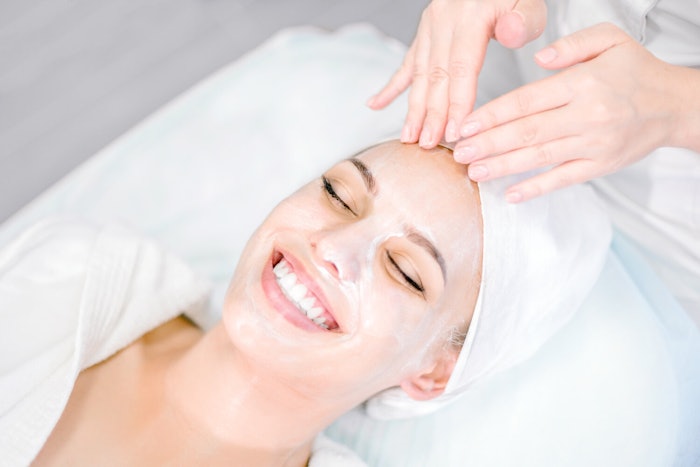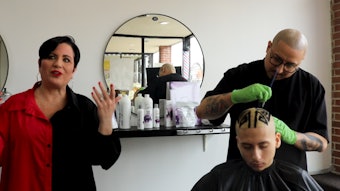
“We must confront our collective ignorance and apathy about how we work and the laws that govern our work.”
After decades of misclassification, wage theft and workplace violations in the beauty industry, the time has come for exploited workers to achieve justice. The timing doesn’t just coincide with the coronavirus pandemic, because it’s no coincidence. A causal connection exists between labor exploitation and the devastating and disproportionate consequences suffered by those in marginalized and underserved communities. We should have expected as much.
Despite publicized reports about discrimination, financial and housing insecurity and health and safety concerns, we’ve dismissed inequities within our industry as not being our problem. We’ve insisted that these legitimate criticisms don’t apply to our salons and distanced ourselves by working alone. That’s no longer acceptable.
Tolerating injustice, whether or not we experience it personally, undermines our professionalism.
We share responsibility for the current circumstances with:
- Beauty pros who expect more compensation than what’s financially feasible or legally required.
- Consumers who demand “affordable” professional services at the expense of service providers.
- Government agencies unable to adequately enforce laws and regulations.
- Trade publications and online outlets that endorse bad actors and perpetuate illegal practices.
- Beauty schools that don’t teach students about workers rights and employer responsibilities.
- Manufacturers that engage in performative activism, or don’t get involved at all.
- Legislators who don’t understand the beauty industry and have not advanced our interests.
With little regard for the possible costly penalties, many salon owners fail to accept the legal and financial responsibilities of having workers in their businesses. Whether informed of their rights or not, workers routinely experience salon owners who:
- insist that commission-only pay makes workers “independent contractors.”
- issue 1099s rather than W2s.
- refuse to pay the equivalent of minimum wage for hours worked.
- don’t give meal or rest breaks.
- don’t compensate for overtime hours.
- steal tips or force tip sharing.
- don’t withhold or pay employment taxes.
- don’t carry workers compensation insurance.
- discriminate against their workers.
- maintain unsafe and unhealthy conditions in the workplace.
When the success of a business depends on defrauding its workers, that business is a fraud.
We must confront our collective ignorance and apathy about how we work and the laws that govern our work. Proposed changes in federal law should prompt every beauty professional to consider how expanded worker protections will impact their business. As expected, the new Biden-Harris administration has plans to prioritize labor reforms to “ensure that all workers are treated with dignity and receive the pay, benefits, and workplace protections they deserve.”
The most obvious and direct proposal in President Biden’s plan to empower workers has also garnered the most attention: a $15 federal minimum wage. This minimum would apply to every industry, even for jobs considered low-skill and without any training or licensure requirements. The plan would also eliminate any sub-minimum wages paid to tipped workers. To reiterate, all workers in every state would be entitled to a minimum of $15 per hour plus their tips. Furthermore, to keep the minimum wage from stagnating, Biden supports “indexing the minimum wage to the median hourly wage” to provide the basis for annual increases. To their advantage, salon owners who’ve previously implemented this higher wage standard have adapted to increased labor costs.
When even the “lowest” among us earns $15 an hour, consumers should be prepared to absorb the real costs of their beauty services.
This alone will transform our industry, but there’s more. As always, federal laws standardize what it means to operate legally, but previous efforts to educate and enforce employment and tax laws have yet to compel compliance. Beyond victimized workers, ethical salon owners struggling against unfair competition will benefit from the commitment to “Aggressively pursue employers who violate labor laws, participate in wage theft, or cheat on their taxes by intentionally misclassifying employees as independent contractors.”
If we didn’t before, now we understand that compliance will not go far enough to remedy the continuing racial, gender and immigration inequalities in our industry. To that end, other statements in the plan have relevance and significance:
- “Put an end to unnecessary occupational licensing requirements.”
- “Increase workplace safety and health.”
- “Establish a federal standard modeled on the ABC test for all labor, employment, and tax laws.”
- “Ensure workers in the ‘gig economy’ and beyond receive the legal benefits and protections they deserve.”
- “Extend the right to organize and bargain collectively to independent contractors.”
- “Expand protections for undocumented immigrants who report labor violations.”
“Eliminate all non-compete agreements…and outright ban all non-poaching agreements.”
Until we learn specific details, let’s acknowledge the transformative power of this plan and commit to staying informed and engaged in the legislative process.
Equally important, consider this in the meanwhile. How will you ensure our industry provides equitable, compliant and inclusive workplaces? What actions will you take to hold yourself and others accountable?

![[GIVEAWAY] Clinically-Proven, Natural Hair Restoration Supplements](https://native-x.imgix.net/allured/65f1fd65b40d3e0001de7f24/yhumbnail%20image.jpg?crop=focalpoint&fit=crop&fp-x=0.5&fp-y=0.5&h=191&w=340&auto=format%2Ccompress&q=70)









